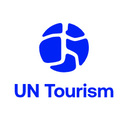UNWTO and CAF Boost Sustainable and Innovative Tourism in Latin America


The World Tourism Organization (UNWTO) and CAF, the Development Bank of Latin America, have signed an MOU to strengthen their collaboration to accelerate tourism development through investments.
Data suggests that global foreign direct investments (FDI) into tourism plummeted by almost 74% in 2020, compared to 2019, putting an end to a period of record high volumes. With international arrivals to destinations in the Americas down by 68% in the first seven months of 2021 when compared to pre-pandemic levels, millions of direct tourism jobs have also been put at risk across the Americas, many of them in small and medium-sized enterprises which account for 80% of the tourism sector worldwide.
The agreement will see the two organizations work together, with the aim of attracting, promoting and mobilizing investments in tourism across Latin America. It places special emphasis on enabling access to innovative financing mechanisms and also on promoting green investments that can accelerate tourism’s shift towards greater sustainability.
UNWTO Secretary-General, Zurab Pololikashvili, said: “Innovation in the way investments are promoted is the key to reshaping the tourism model. Working on strengthening the venture capital culture in countries, leading the growth of startups and boosting green investments through the UN Tourism Net Zero Fund together will help UNWTO and CAF Member States in the Americas to lead the shift towards sustainable economic development.”
The Executive President of CAF, Sergio Díaz Granados said “With this initiative with the UNWTO, we will seek that the new tourism becomes the greatest ally of environmental sustainability. We also believe tourism can be a catalyst for regional economies in Latin America and the Caribbean, and we also believe that, in the current difficult context we live in given the economic crisis that the pandemic left us, it may be the main source of recovery for many countries.”
UNWTO has recognized the potential of investments to accelerate the green transition in the tourism sector. The Glasgow Declaration for Climate Action, launched by UNWTO and partners at the COP26 Climate Change Conference earlier this month, recognizes financing as an essential pillar of a sector-wide commitment to halve carbon emissions within the next decade and reach net-zero by 2050.
About CAF
CAF -Development Bank of Latin America- was created in 1970, is owned by 19 countries - 17 of Latin America and the Caribbean, Spain and Portugal- as well as 13 private banks in the region which aim is to promote sustainable development and regional integration, by providing multiple financial services to clients in the public and private sectors of its Shareholder Countries.
RELATED LINKS:
- Regional Department for Americas
- Tourism unites behind the Glasgow Declaration on Climate Action at COP26
- UNWTO, Panama and NOAH Support Creation of UN Fund for the Climate Neutrality of Tourism
About UN Tourism
The World Tourism Organization (UN Tourism) is the United Nations agency responsible for the promotion of responsible, sustainable and universally accessible tourism.
As the leading international organization in the field of tourism, UN Tourism promotes tourism as a driver of economic growth, inclusive development and environmental sustainability and offers leadership and support to the sector in advancing knowledge and tourism policies worldwide.
Our Priorities
Mainstreaming tourism in the global agenda: Advocating the value of tourism as a driver of socio-economic growth and development, its inclusion as a priority in national and international policies and the need to create a level playing field for the sector to develop and prosper.
Promoting sustainable tourism development: Supporting sustainable tourism policies and practices: policies which make optimal use of environmental resources, respect the socio-cultural authenticity of host communities and provide socio-economic benefits for all.
Fostering knowledge, education and capacity building: Supporting countries to assess and address their needs in education and training, as well as providing networks for knowledge creation and exchange.
Improving tourism competitiveness: Improving UN Tourism Members' competitiveness through knowledge creation and exchange, human resources development and the promotion of excellence in areas such as policy planning, statistics and market trends, sustainable tourism development, marketing and promotion, product development and risk and crisis management.
Advancing tourism's contribution to poverty reduction and development: Maximizing the contribution of tourism to poverty reduction and achieving the SDGs by making tourism work as a tool for development and promoting the inclusion of tourism in the development agenda.
Building partnerships: Engaging with the private sector, regional and local tourism organizations, academia and research institutions, civil society and the UN system to build a more sustainable, responsible and competitive tourism sector.
Our Structure
Members: An intergovernmental organization, UN Tourism has 160 Member States, 6 Associate Members, 2 Observers and over 500 Affiliate Members.
Organs: The General Assembly is the supreme organ of the Organization. The Executive Council take all measures, in consultation with the Secretary-General, for the implementation of the decisions and recommendations of the General Assembly and reports to the Assembly.
Secretariat: UN Tourism headquarters are based in Madrid, Spain. The Secretariat is led by the Secretary-General and organized into departments covering issues such as sustainability, education, tourism trends and marketing, sustainable development, statistics and the Tourism Satellite Account (TSA), destination management, ethics and risk and crisis management. The Technical Cooperation and Silk Road Department carries out development projects in over 100 countries worldwide, while the Regional Departments for Africa, the Americas, Asia and the Pacific, Europe and the Middle East serve as the link between UN Tourism and its 160 Member States. The Affiliate Members Department represents UN Tourism's 500 plus Affiliate members.
UN Tourism Communications Department
+34 91 567 8100
UN Tourism
